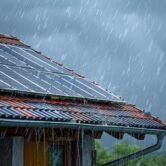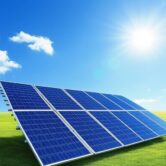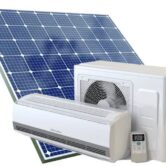In recent years, there’s been a noticeable shift in how Nigerians power their homes and businesses. From urban centers like Lagos and Abuja to rural communities in Kaduna and Enugu, more people are installing solar panels on rooftops and embracing renewable energy. But what’s behind this growing trend?
This article explores why more Nigerians are turning to solar energy, the benefits it offers, and why now is the best time to join the solar revolution.
1. Nigeria’s Power Problem: The Push for Alternatives
For decades, Nigerians have struggled with an unreliable national grid. Power cuts (a.k.a. “NEPA has taken light”) are a daily reality for millions. According to the World Bank, over 85 million Nigerians (about 43% of the population) still lack access to electricity.
Even those connected to the grid face:
- Frequent blackouts
- Voltage fluctuations
- High diesel and petrol costs for generators
- Unpredictable electricity bills
Faced with this unstable energy situation, many Nigerians have had no choice but to explore alternative power sources. And among the available options, solar energy is leading the way.
2. Nigeria Has Abundant Sunshine
Nigeria is located in the tropical sunbelt, receiving an average of 6–7 hours of peak sunlight per day in most regions. This makes the country one of the most solar-rich locations in the world.
Why waste such a free, abundant resource?
With proper installation, solar panels in Nigeria can consistently generate electricity throughout the year — even during the rainy season when sunlight still penetrates the clouds.
3. Rising Cost of Fuel and Generators
Generators have long been the backup plan for power outages, but they’re no longer cheap to run.
- Fuel prices have skyrocketed, especially since the fuel subsidy removal in 2023.
- Maintenance costs (oil changes, repairs, parts) are rising.
- The noise, fumes, and air pollution are becoming harder to tolerate in residential areas.
Solar energy, on the other hand, requires no fuel, produces no noise, and has very low maintenance costs. Over time, it’s much cheaper than relying on a diesel or petrol generator.
4. Long-Term Cost Savings
While the upfront cost of a solar installation can seem high, it pays off in the long run.
Here’s why:
- After installation, sunlight is free — no monthly fuel or power bills.
- Battery storage can power your home at night, reducing reliance on PHCN or a generator.
- A good solar system can last 20 to 30 years, giving you decades of clean power.
In many cases, homes with solar save up to 70% on energy costs over time.
5. Improved Access to Solar Technology and Financing
The solar industry in Nigeria has evolved rapidly.
Today:
- More certified solar installers are available nationwide.
- Flexible payment plans (pay-as-you-go, leasing, and microfinancing) make solar affordable for more households.
- Rural communities are benefiting from community solar projects and government-supported mini-grids.
Even small-scale solar kits that power lights, phones, and fans are now sold in markets across Nigeria.
6. Solar Fits All Lifestyles – Urban and Rural
Whether you live in a 2-bedroom flat in Ikeja or a remote village in Kogi, solar can be tailored to meet your specific energy needs.
Common use cases:
- Urban homeowners powering their lights, fans, TVs, fridges, and work devices.
- SMEs and shops avoiding downtime from power outages.
- Students needing uninterrupted power to study.
- Rural households gaining electricity for the first time.
From 500W starter kits to 5kW hybrid systems, there’s a solar solution for every budget and household size.
7. Clean, Sustainable, and Environmentally Friendly
Nigeria’s cities are polluted by the noise and fumes of over 22 million small generators.
Switching to solar:
- Reduces carbon emissions
- Improves air quality
- Promotes a healthier environment
- Aligns with global efforts to fight climate change
As the world goes green, solar energy helps Nigeria join the movement for a cleaner, more sustainable future.
8. Government and Private Sector Support
Though still developing, Nigeria’s renewable energy sector is receiving increasing support from:
- The Rural Electrification Agency (REA)
- Foreign investments and NGOs
- Private companies offering solar-as-a-service
Incentives like zero import duty on solar components, and grants for rural mini-grids, are making solar adoption easier.
Conclusion: The Future of Power in Nigeria Is Sola
With the rising cost of living, unstable grid electricity, and an abundance of sunshine, it’s no surprise that more Nigerians are switching to solar energy.
- Solar is:
- Clean
- Reliable
- Cost-effective
- Scalable
- Available nationwide
Whether you’re fed up with blackout frustration, or simply want to save money long-term, now is the time to explore solar energy for your home or business.





